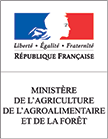The recent rush towards sustainable palm oil and commitments to zero-deforestation by major corporations may be driven by public pressure and political expediency – but what are the realities of transforming the industry that produces one of the world’s most commonly used ingredients? Certified sustainable palm oil currently accounts for 20 percent of the global production, but half of that certified sustainable palm oil goes unsold, raising questions as to the market demand.
Meanwhile, land-use plans and industrial agricultural conversion continues to level rainforests across Southeast Asia and increasingly across Equatorial Africa at record rates, threatening great apes and the ecosystems in which they survive. Major palm oil producers have responded by committing to zero-deforestation policies as a means of addressing consumer demands and engaging more fully with the Sustainable Development Goals, but how many actually understand the cost – both financially and logistically – of doing so, particularly when supply chains are so difficult to monitor?
Experts will address the trajectory of industrial agriculture around the globe, with emphasis on Asia, where cultivation rates fuel all aspects of this industry, and in Africa, where cultivation rates have been relatively low but are predicted to increase dramatically in the foreseeable future.
Key questions addressed
- How can the growing demand for commodities, which will require increased production, be reconciled with environmental considerations that include biodiversity conservation and climate change?
- Can an entire industry re-invent itself in time to prevent more damage to the environment – and still meet market demand?
- What are the options to sustainably increase productivity and livelihoods from smallholders?
- How has the expansion of industrial agriculture into the tropical forest estates of Africa and Asia impacted species such as apes and affected climate change?
Background reading
State of the Apes pilot publication: Extractive Industries and Ape Conservation
How Herakles Farms’ illegal timber trade threatens Cameroon’s forests and VPA.
The Future of the Bornean Orangutan: Impacts of change in land cover and climate.
Will Oil Palm’s homecoming spell doom for Africa’s Great Apes?
Union of Concerned Scientists (2014) Donuts, Deodorant and Deforestation: Scoring






































